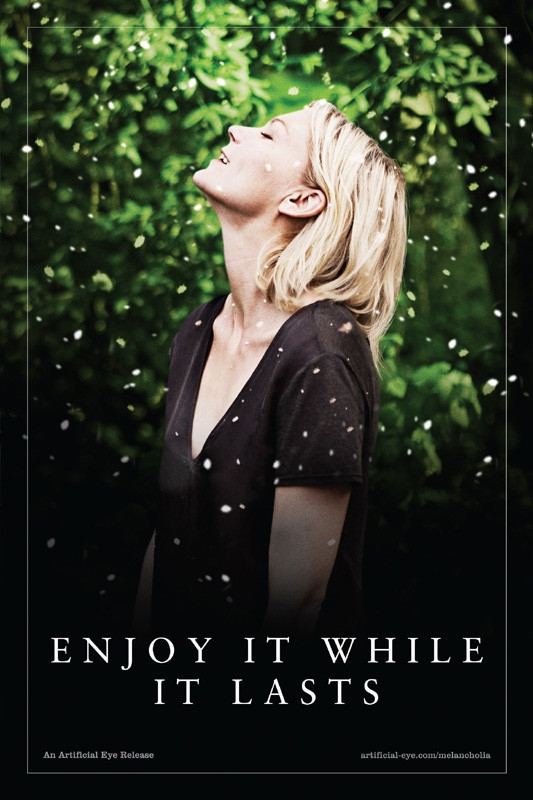
SPOILER FREE
As someone who, despite being an ex film student and general film buff, had never seen a Von Trier film before, I had no idea what to expect from the director when I went to see his latest. Whether it was a good or a bad idea to start with Melancholia remains to be seen, but at this stage I'm coming down on the side of good. I have now seen the film twice, both times at the Curzon Cinema in Richmond (which, by the way, gets my full endorsement as a great little cinema, even with the price tag - tickets will usually set you back around eleven quid). I felt I really needed to see the film a second time before I could blog about it - Melancholia is the sort of movie the significance of which takes a while to sink in (and still hasn't sunk all the way yet).
Upon returning from my first viewing, I tweeted words to the effect that Melancholia was probably the closest thing I'd seen to true cinematic genius since Bela Tarr's Werckmeister Harmonies (2000). I'm standing by this reaction (in fact, Melancholia is now vying with Almodovar's The Skin I Live In for the title of Best Film I Have Seen This Year). Reactions to Melancholia in general, as far as I have been able to gage, have been pretty much split down the middle between 'utterly brilliant' and 'pointless, pretentious and boring as hell'. Clearly, I am of the former of the two opinions; those who are of the latter either have an irreconcilably different taste in cinema, which is fair enough, or have completely misunderstood the film altogether. Which isn't fair at all.
I won't say that I completely understand it myself; there are clearly layers upon layers of undiscovered meaning in Melancholia. I don't think the film is pretentious - but I can understand it being read that way. However, I will say that to call the film pointless or boring is totally without foundation. Melancholia is an intensely psychological exploration of depression and social interaction; Kirsten Dunst plays Justine, a chronically depressed woman, Charlotte Gainsbourg her sister Claire, and Kiefer Sutherland Claire's husband John. The film is split into three distinct sections; the opening montage sequence, and two subsequent chapters entitled 'Justine' and 'Claire'. In 'Justine' we are presented with her difficulty to cope with her own wedding due to her depression and family/work pressures. In 'Claire', we see more interaction between the two sisters in the build up to the finale. Even leaving out the main plot device, Melancholia is still an intriguing and beautiful film, but with it, it is truly spectacular. A strange new planet, the planet Melancholia, has appeared in the heavens; speculation about whether or not this planet will crash into Earth, annihilating all life, creates a grander sense of impending doom which taints all the human interaction, twisting the tension level of the film as tight as a drum.
As I said, there are layers upon layers of meaning in this film, and there's no room in this review to discover and analyse them all, so I will just pick out a few of my favourite points. I like that this film is woman-centric; when I imagine it being about brothers instead of sisters, it feels jarring and wrong. I like the unashamedly unexplained mix of American and British actors, and the undisclosed setting. I like Von Trier's subtlety in portraying depression; the scene where Justine changes all of the displayed open art books over from minimalist abstracts to more emotional, humanistic pictures (including one of the drowned Ophelia by Millais, which Von Trier at one point recreates with Kirsten Dunst) is especially well done, and true to life. I love the opening sequence; made up of incredibly slowed down shots, some of them taken from later in the film, some of them pure fantasy, it has an unmistakeable dreamlike or hallucinogenic quality, a cosmic ballet reminiscent of Kubrick's 2001.
Lars Von Trier's Melancholia is one of my current Films of the Moment - it's not on general release, but you can see it at various independent cinemas including Curzon and Picturehouse, and also at the Swiss Cottage Odeon.


No comments:
Post a Comment